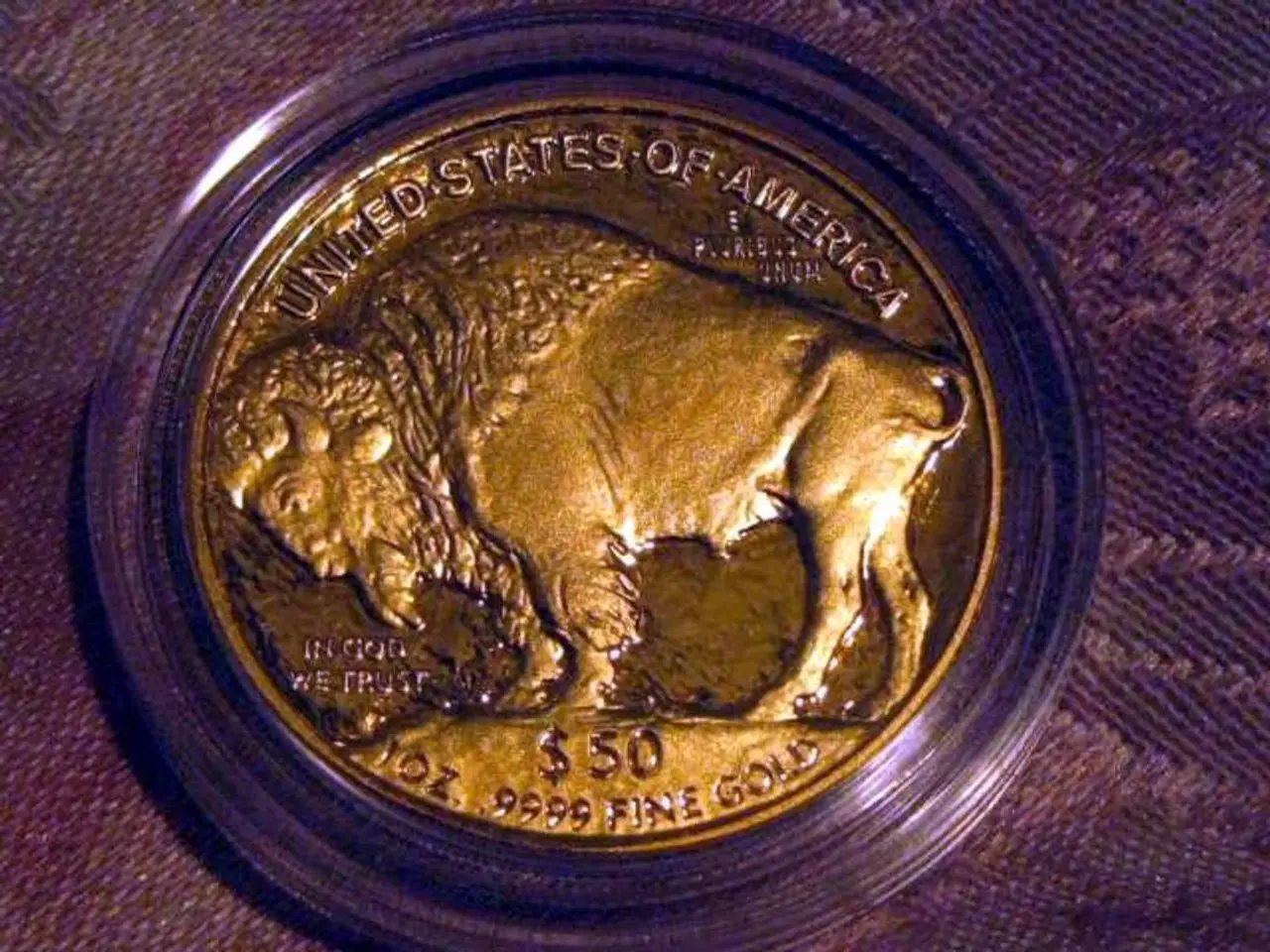Title: Trump's Gold Tariffs and the Rise of Cryptocurrencies: A Shift in Investment Landscape
Impact of Trump’s Gold Tariffs on the Gold Market
- Market Volatility and Uncertainty: Tariffs often create uncertainty in global markets, and Trump's trade tensions and protectionist policies led to volatility in commodity markets, including gold. While gold is a traditional safe-haven asset during uncertainty, the changes in supply dynamics and trade barriers contributed to price fluctuations.
- Benefits for Domestic Miners and Higher Consumer Prices: Some U.S. gold miners potentially benefited from tariffs that made foreign competitors’ products more expensive. However, consumers and industries relying on gold imports faced higher prices due to tariffs, which could have dampened demand.
- Limited Direct Tariffs on Gold Bullion: It is important to note that gold bullion itself was generally exempt from major tariffs. The tariffs mostly impacted gold-related products or materials rather than raw gold bars or coins.
Trump imposes gold taxes, hindering safe-haven investment refuge
Increased Costs and Potential Disruptions: The Trump administration's tariffs on gold-related goods raised production costs, potentially causing supply chain disruptions. Higher tariffs made imported gold and gold components more expensive, which could push gold prices upwards.
Potential Shift Towards Crypto Investments
- Gold vs. Crypto as Stores of Value: Gold has long been a traditional store of value, but increasing market volatility and rising costs due to tariffs may have pushed some investors to explore alternatives like cryptocurrencies.
- Increased Interest in Crypto During Trade Tensions: Trade tensions and protectionist policies increased interest in decentralized, borderless assets. Cryptocurrencies appeal as digital assets free from government tariffs, controls, or trade wars.
- Diversification Strategy: Investors looking to hedge against gold price volatility and inflation might diversify portfolios with both gold and cryptocurrencies. Crypto, while riskier and more volatile, offers potential high returns and non-correlation with traditional markets.
- Technological Adoption and Demographics: Younger and tech-savvy investors, witnessing the tariffs’ impact on traditional markets, may prefer crypto investments. This demographic shift fosters a long-term trend toward greater crypto adoption, impacting the demand for gold as a safe-haven asset.
Summary
Trump’s tariffs on gold-related products increased production costs and contributed to some market volatility but had a limited direct effect on gold bullion prices. These dynamics, combined with increased geopolitical uncertainty, encouraged some investors to consider cryptocurrencies as alternative stores of value. While gold remains a fundamental safe-haven, tariffs and evolving investor preferences are part of a larger shift where crypto assets are gaining prominence in diversified portfolios.
Additional Information
- Innes further notes that "gold is one of the clearest safe havens in the midst of the chaos caused by this policy."
- The United States has imposed tariffs on gold imports, specifically on one-kilo gold bars.
- Brazil is facing 50% new US import tariffs and has linked this to internal political arguments such as the criminal prosecution of former Brazilian president Jair Bolsonaro.
- Bolsonaro must answer to justice for his role in an attempted coup after his electoral defeat in 2022.
- The World Trade Organization (WTO) has been called upon by Brazil due to new US import tariffs.
- Stephen Innes of SPI Asset Management believes that this measure is a "tectonic shift" on the gold market and another brushstroke in Trump's America First painting.
- Brazil's chances of success at the WTO are seen as limited due to issues with the dispute settlement system and the appointment of new judges.
- One-kilo gold bars are the most commonly traded format on the New York futures exchange Comex.
- Innes also suggests that by targeting kilogram bars, the government is rewriting the international rules on what constitutes a neutral asset and what doesn't.
- The US has agreed to correct errors and refund excess tariffs in the trade agreement between the US and Japan.
- The tariffs are being imposed on gold imports from Switzerland, which plays a significant role in the global gold trade.
- The foreign ministry in Brazil sees this as a deliberate attempt by Washington to exert political pressure in favor of the right-wing former president.
- Japan is supposed to pay a 15% tariff on most exports to the US, but this rate has been increased for certain product groups such as beef.
- The Customs Border Protection Agency (CBS) has stated that gold bars weighing one kilogram and 100 ounces will be subject to duties.
- As trade tensions escalate and political uncertainties mount, both domestic and international investors might find merit in exploring cryptocurrencies as decentralized, borderless alternatives to traditional stores of value, such as gold, whose prices are influenced by tariffs and geopolitical factors.
- Given the rising significance of gold tariffs in the industry, finance, politics, and general-news sectors, analysts like Stephen Innes of SPI Asset Management argue that this trend epitomizes a tectonic shift on the gold market, with cryptocurrencies emerging as a formidable competitor to traditional safe-haven assets like gold.




